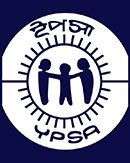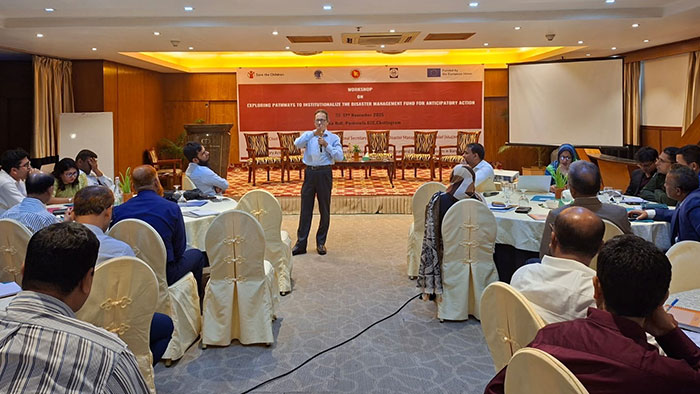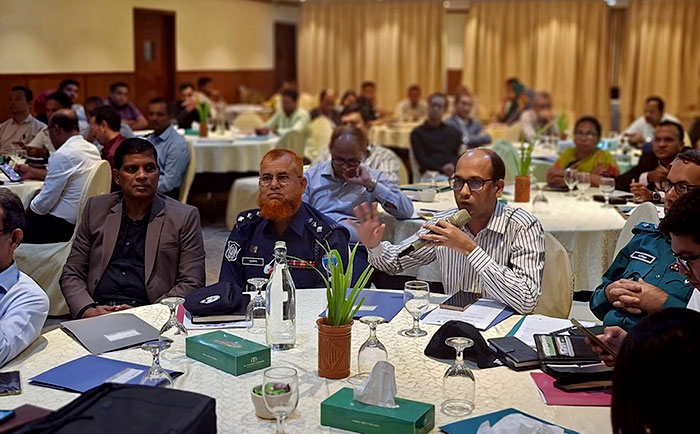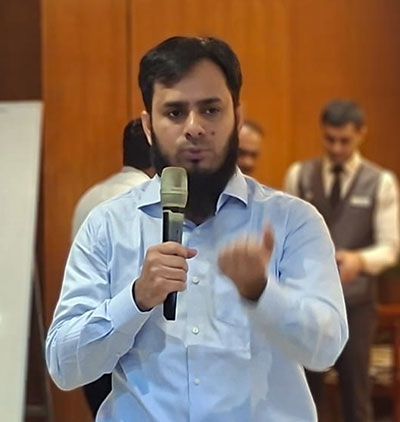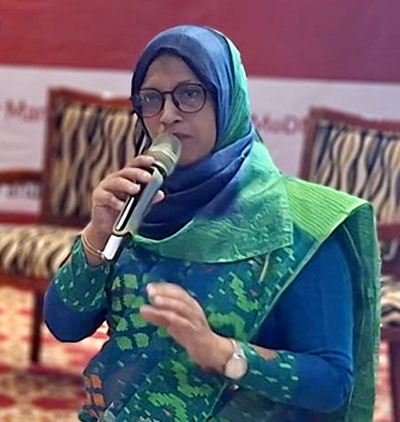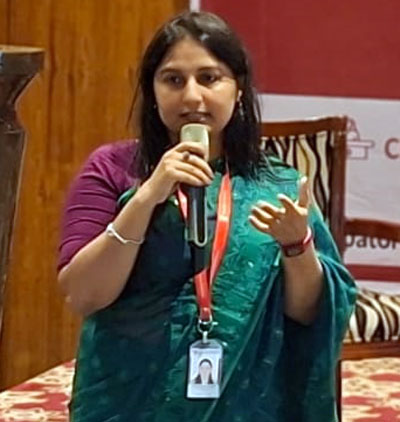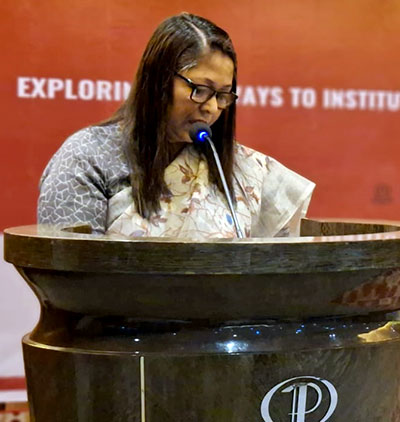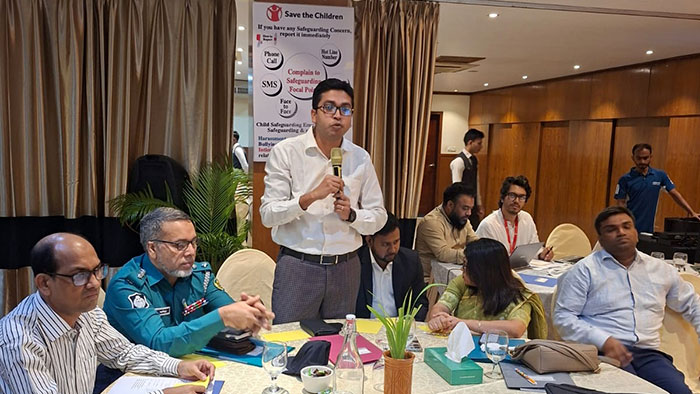Let the new era of the Disaster Management Fund begin with Chittagong District
– M. Abdul Wadud, Additional Secretary, Ministry of Disaster Management and Relief.
A pivotal workshop, “Exploring pathways to institutionalize the Disaster Management Fund (DMF) for Anticipatory Action (AA),” was successfully organized on Monday, November 17, 2025, at the Peninsula, Chattogram. The event was jointly hosted by YPSA, Save the Children, and RIMES, with support from the European Civil Protection and Humanitarian Aid Operations (ECHO). This high-level gathering focused on transforming the DMF from a reactive relief mechanism into a strategic financial tool capable of funding proactive measures before disasters strike, specifically targeting severe landslide and flash flood risks in the vulnerable Chattogram region.
The workshop underscored the government’s commitment to strengthening local disaster preparedness and moving towards a forecast-based approach to minimize loss of life and property.
The workshop was chaired by Pathan Md. Saiduzzaman, Additional Deputy Commissioner (Education & ICT), and honored by the presence of K M Abdul Wadud, Additional Secretary, MoDMR, as the Chief Guest.
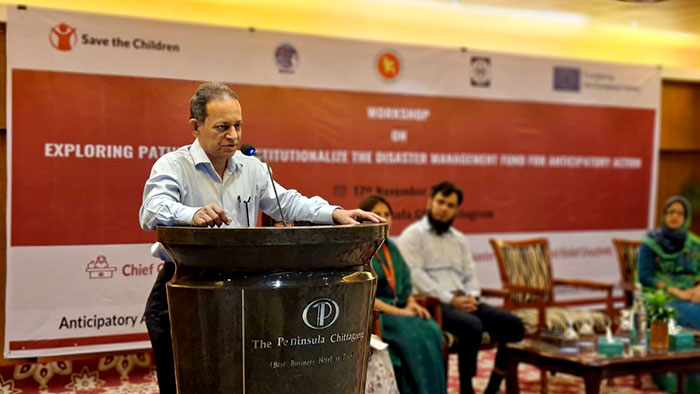
Key insights into the DMF’s potential were delivered through keynote presentations by Asim Chandra Banik and Sanzida Yasmin, Deputy Secretaries, MoDMR. The program concept was presented by Fatema Meherunnessa, following Opening Remarks from Nasim Banu, Director, YPSA. Critical local stakeholders, including the UNOs of Hathaari and Anowara, AC Land of Chattogram City, Chattogram Metropolitan Police, DRRO, PIO, DPHE, and FSCD officials, participated actively in the discussions, ensuring a strong presence from all relevant departments.
Through extensive in-depth presentations and an open discussion session, participants collaboratively analyzed current operational gaps and formulated clear policy recommendations. The consensus centered on the urgent need to empower local administration—specifically at the Upazila and District levels—to quickly and strategically access the DMF based on early warning forecasts. These recommendations aim to establish a more robust and localized financing framework, which will now serve as the basis for advocacy and follow-up with the Ministry of Disaster Management and Relief, fostering long-term community resilience and safeguarding vulnerable populations.
In his remarks, Mr. Abdul Wadud noted that the Disaster Management Fund was established in 2012, with regulations framed in 2021, and emphasized its relevance for both natural and human-made disasters. He highlighted the presence of nearly 8 million volunteers across Bangladesh and announced the development of a National Volunteer Policy aimed at creating a disaster-based digital platform to deploy volunteers efficiently across different geographical regions.
The Chair further stressed the urgency of operationalizing the Disaster Management Fund at both national and local levels. He stated that the process of activating the fund has already begun, creating new opportunities for preparedness and response. He encouraged subordinate upazilas to request necessary allocations for the DMF, which will then be forwarded to the ministry for approval, accelerating efforts to institutionalize and strengthen the fund nationwide.
